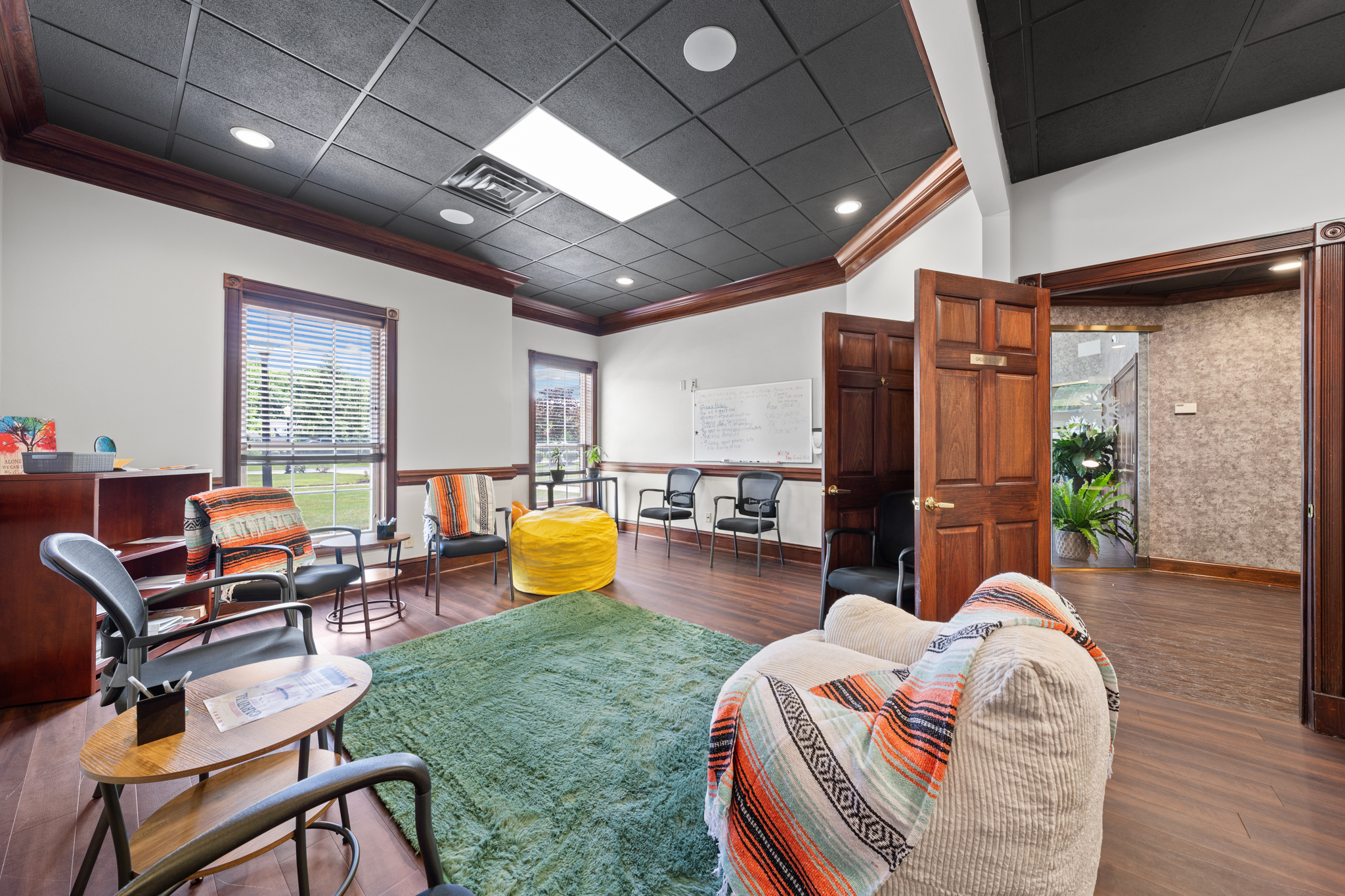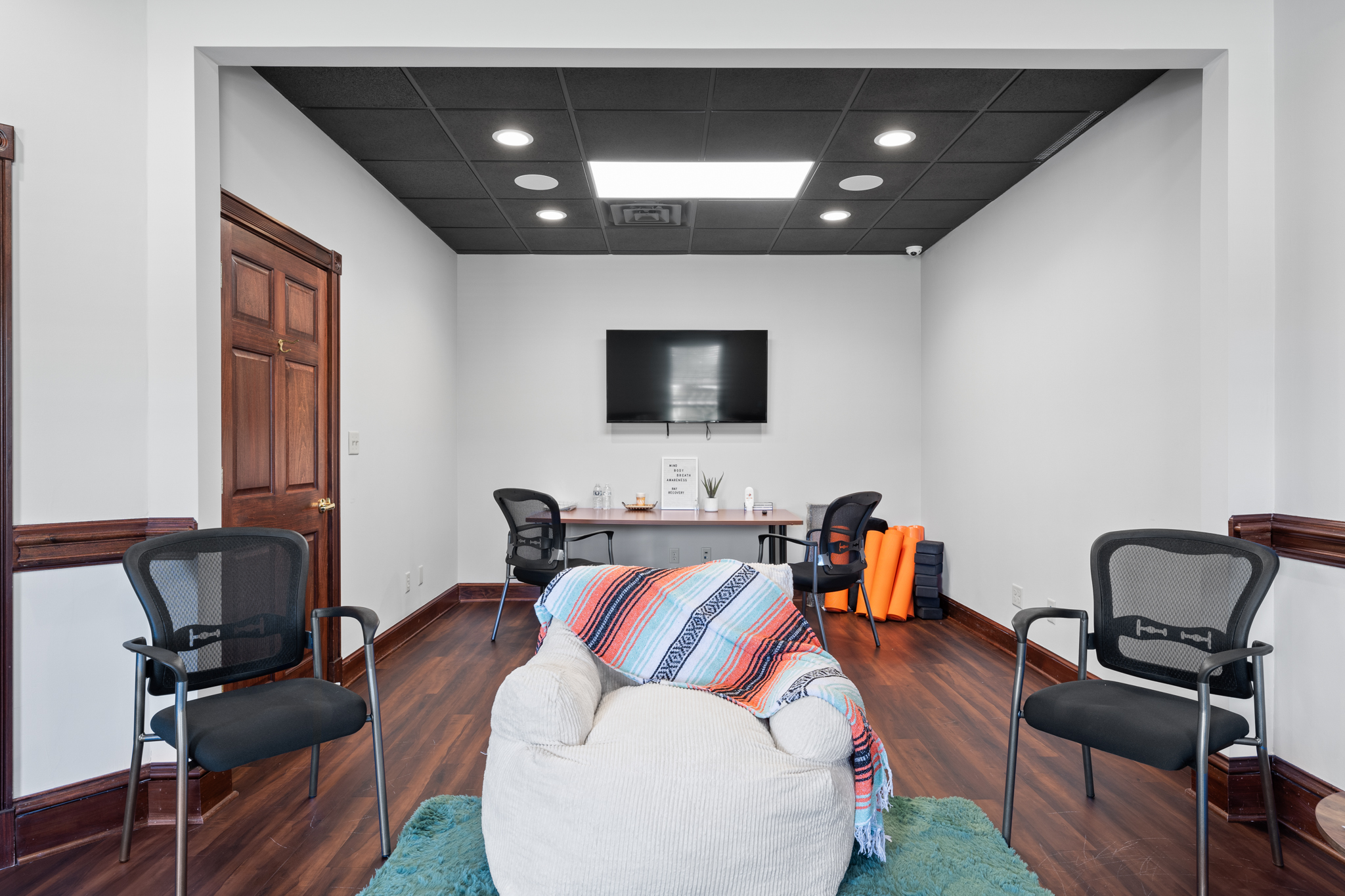- Written By: Angie Sowers
- Medically Reviewed By: Nancy Esposito
We offer comprehensive substance abuse treatment in Akron, OH, including treatment for opioids. Vicodin, OxyContin, and fentanyl are among some of the most frequently abused drugs today.
If you or your loved one is struggling and could use an opioid rehab in Akron, OH, know that you’re far from alone. Fortunately, this also means their effects and addiction processes are well understood, and effective treatment is available. If you’re seeking substance abuse treatment contact Ray Recovery at 888.839.2606 or by online message.

What Are Opioids?
Opioids are a powerful class of drugs that act as central nervous system depressants. This means that when used as intended, they can substantially reduce pain from major surgery or chronic conditions. These are some of the most well-known opioids and opiates:
- Codeine
- Fentanyl
- Morphine
- Methadone
- Oxycodone
- Hydrocodone
- Heroin
- Opium
They affect the brain’s dopamine circuit in a way that can easily lead to chemical dependence. In these cases, those taking opioids become unable to function well without ongoing use. Moreover, opioids can become psychologically habit-forming because an intense “high” accompanies the drug’s pain-fighting power.
Do You Need an Opioid Rehab in Akron, OH?
Because opioid tolerance can rise dramatically, meaning you need increasing amounts to achieve the same effect, overdose risk is high.
Tragically, given their depressant effects on key functions like respiration and heart rate, opioid overdose can easily result in death. It’s thus essential to get help right away if you’re taking opioids outside of their prescribed dosage and schedule for use.
If you notice these signs of dangerous opioid use, reach out to an opioid rehab in Akron, OH as soon as possible:
- Dishonest behavior such as claiming one’s medication was stolen in order to request early refills, “doctor shopping” for multiple providers, buying pills illegally, or concealing the extent of one’s usage from loved ones
- Withdrawal symptoms like dilated pupils, muscle aches, sweating, fever, and insomnia occurring if opioids become unavailable for a time
- Declines in relationships, hobbies, school, or work performance due to reduced interest in activities
- Over-sedation or markedly low energy and lethargy
Words From Our Clients
What Can I Expect From Opioid Addiction Treatment?
During an opioid addiction treatment in Akron, OH, here is what to expect:
1. Evaluation
Clients first receive an evaluation from a doctor or clinician. This assesses factors like the amount, frequency, and kinds of drugs the client is using. The evaluator will also consider family history and whether a co-occurring mental health concern is present. After evaluation, a customized treatment protocol can begin.
2. Medically Monitored Detoxing
Clients battling a severe physical dependence on opioids may need medically monitored detox to get the ball rolling. In this approach, those detoxing get 24/7 care and supervision from medical personnel who support them through the drug withdrawal experience. In some cases, providers may administer medication to manage symptoms, and, in general, key functions like clients’ blood pressure and fluid levels receive regular attention.
Detox at our opioid rehab in Akron, OH essentially involves getting your body free from the drug you’re addicted to. Here, clients move through the first challenging days and weeks of gradually decreasing cravings. Withdrawal symptoms can be quite uncomfortable, including effects like nausea, cramping, insomnia, and sweating. It can, therefore, be difficult to avoid relapsing if drugs are still readily available, so some level of detox supervision can be beneficial. Caregivers support a drug-free environment, monitor clients’ vitals, administer fluids as needed, ensure good nutrition, and may provide pain medication to help manage symptoms.
3. Individual and Group Therapy
Individual and group therapy form the following major components of opioid recovery. Interventions like cognitive-behavioral therapy (CBT) are especially effective at giving clients more agency over their internal landscape.
Many clients feel overwhelmed by cravings and challenging emotions that may prompt them to use. CBT helps them develop more positive self-talk and the ability to tolerate internal tension. Moreover, therapy helps clients make concrete plans for maintaining sobriety through strategies like contingency management. Clients may also make plans for longer-term support, like 12-step groups or aftercare programs.
Dialectical-behavioral therapy at our opioid rehab in Akron, OH provides further support by teaching mindfulness, or the ability to tolerate internal discomfort through detachment and equanimity. More specific approaches can also assist those who have a dual diagnosis of a specific mental health concern, such as bipolar disorder or major depression.
Group therapeutic styles are likewise frequently included in treatment for those in opiate recovery. Family therapy can help get a person in recovery and their primary support system on the same page about treatment goals. It can also serve as a space to process unresolved trauma and cultivate forgiveness. Peer support groups are similarly effective in helping clients build a supportive and non-judgmental network. At the same time, peer groups build accountability and perseverance.









Reach Out to Us Today
"*" indicates required fields
What Are Some Factors That Increase the Risk of Opiate and Opioid Addiction?
Opioid addiction can happen to anyone, given how powerful the drugs are in and of themselves. Opioids attach to brain receptors responsible for both the experiences of pain and pleasure, reducing the former and increasing the latter.
This disruption to the brain’s natural processes quickly makes it “forget” how to regulate its own chemistry without the drug. In this way, dependence and addiction can form.
While repeated exposure to opioids will certainly change the brain’s structure over time, behavioral dependence is somewhat more variable.
Don’t hesitate to reach out to our reputable drug rehab in Akron, OH. Here are a few factors known to increase the risk that a person using opiates will develop dependence:
- Taking opioids or opiates outside of the dosage and timeline set forth by the prescribing doctor
- Using opioids in a way other than oral, for example, injecting them or “shooting up”
- Taking opioids for more than a few days, since their neurological potency makes them alter structure and function amazingly quickly
- Having a condition involving significant depression or anxiety
- Having a family history of substance abuse
- Dealing with a personal history of sensation- or thrill-seeking behavior
- Heavy nicotine use which, like opioids, impacts the brain’s reward circuitry
- Significant life stressors like a demanding job, poverty, or challenging relationships, which can create a pressing desire to reduce tension
Begin Treatment at Ray Recovery’s Opioid Addiction Center in Akron, Ohio Today
Why wait another day to pursue the addiction recovery support you and your family deserve? At Ray Recovery, we strive to be a ray of hope in the addiction treatment community and will always endeavor to provide the most effective, respectful, and compassionate services for our clients. Call our knowledgeable team at 888.598.6299 or fill out our confidential online form with any questions or to begin enrollment.


